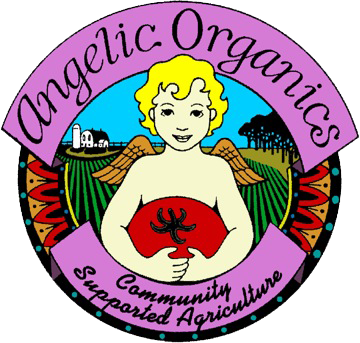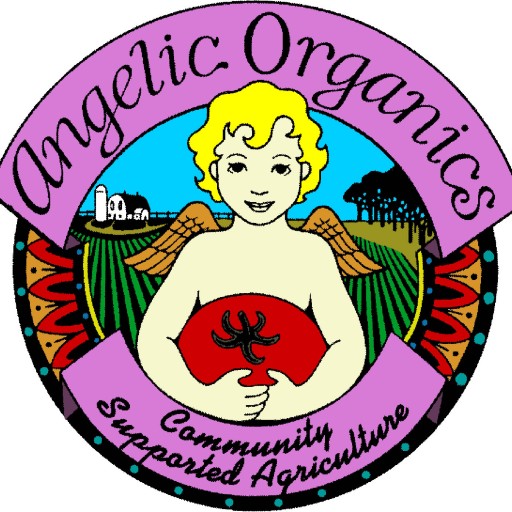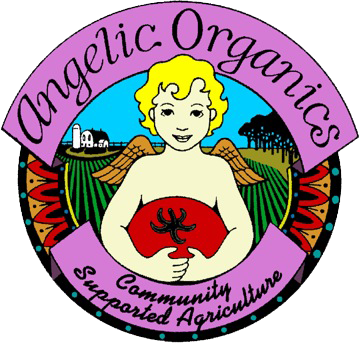Farmer John Writes: Community Supported Agriculture and You
2nd Harvest Week, June 15th-18th 2016
If you receive a half share or a flex share and this is your first box, welcome to our 2016 harvest season!
Your Box This Week
Visit Week 1 of Farm News to learn about the many considerations that give rise to what’s in your box. Much of what is in the Week 2 box was also in the Week 1 box; however, there will be no cilantro, pea shoots or spinach in the Week 2 box, and probably radishes in only some of the Week 2 boxes. If you get a half share, or a flex share, you will miss some harvests that conclude in a single week, such as last week’s cilantro, but you will catch some of these crops in an upcoming week. For instance, we do numerous seedings of cilantro throughout the season. We do fall seedings of spinach and radishes, and occasional seedings of pea shoots.
Our first harvest of beets, baby chard and dill will grace your box this week, in addition to a generous helping of lettuce; a beautiful head of pac choi; a stalwart bunch of scallions; and a magnificent bouquet of kale. About the spinach, we had a beautiful crop of spinach for the first week, but spinach is a high risk crop for spring in the Midwest. A glorious crop on Friday can succumb to heat and be rendered worthless—yellow and wilted–by the following Monday. Even if I had seeded spinach for this week’s harvest, we probably would have lost it to the weekend’s heat.
Week 2 Saturday Box Contents
Please note: this summary is written before you receive your box—be aware that some guesswork is involved. As always, be sure to thoroughly wash all of your vegetables.
- Lettuce (and maybe more lettuce—depends on the heat this week; lettuce can bolt in the heat)
- Baby Rainbow Chard
- Bunched Beets
- Bunched Kale
- Purple choi
- Zucchini
- Dill
- Scallions
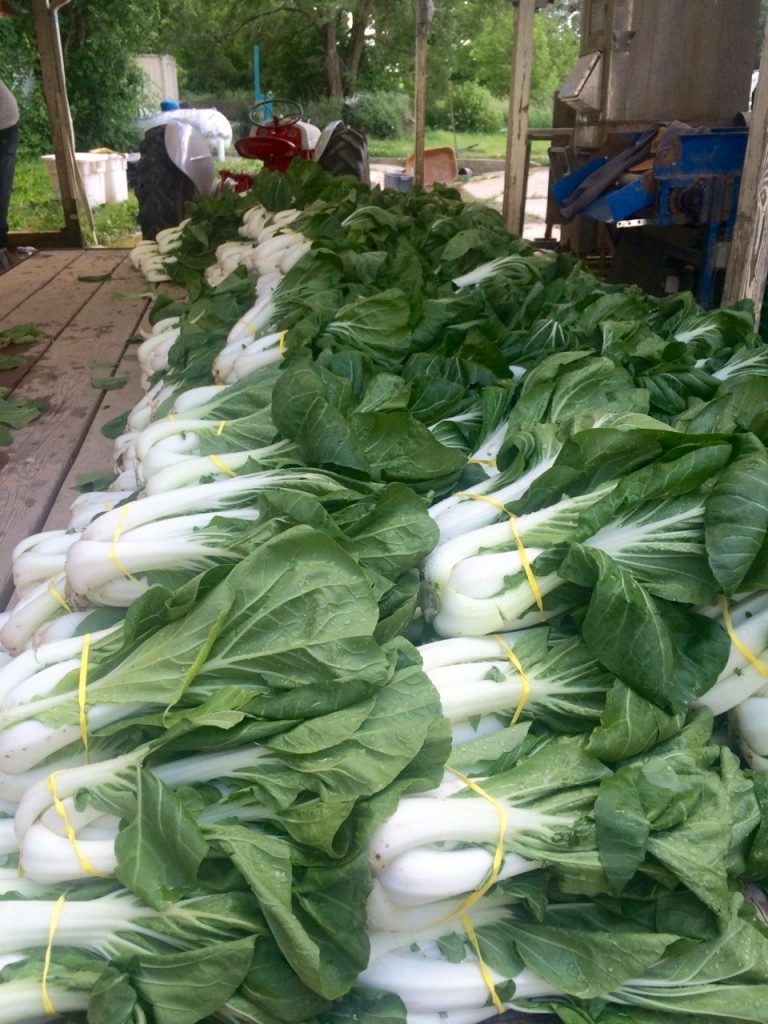
Pac Choi, Ready for a Wash
Community Supported Agriculture and You
Last Friday evening, about 20 of us came together in the big barn for a pot luck, tour of the farmstead, and screening of the feature documentary film about the farm and my life, The Real Dirt on Farmer John. An engaging discussion followed the film about the future of Community Supported Agriculture, leading to my reflections as I write this issue of Farm News.
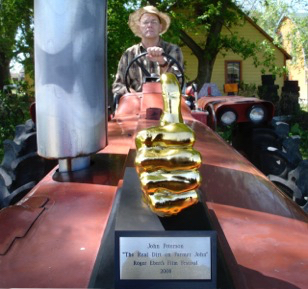
Thumbs Up from the Roger Ebert Film Festival
An Encouraging Beginning
In the 90’s, Community Supported Agriculture emerged as an economic, culinary and cultural alternative to the sourcing and growing of food. It was a pioneering model that helped to popularize organic food by making it available to millions. The main premise of Community Supported Agriculture was to enter into a direct, personal relationship with a farm and to be the beneficiary of that farm’s production of food. It was a most inspiring model, supporting the dwindling number of small family farms and bearing the promise of rejuvenating agriculture, while connecting the shareholder, who was often generations removed from life on the land, to the ways of the earth. CSA farmers rejoiced in their newfound relationship to people for whom they were growing food; shareholders celebrated having a reasonably priced source of local, organic food and their deep connection to a farm—a farm to call their own.
Who are these New People in the Hood?
The 90’s for Community Supported Agriculture were a bit like the 60’s in SoHo and the 70’s in San Miguel de Allende, Mexico. Creative people took up residence in declining areas, eventually giving rise to vibrant communities. These transformations became beacons for developers and real estate magnates. Gentrification followed and pushed the struggling artists/pioneers out. A similar progression has accosted Community Supported Agriculture. Well capitalized entrepreneurs have perceived a financial edge in the Community Supported Agriculture model, exploited it by extolling CSA attributes–local, organic, fresh— in their own sales pitch, and then offered features that CSA farms cannot easily provide: home delivery (often free), customized boxes, no up-front fee, and no long term commitment. Many of these food aggregators are able to add items like bananas and granola to the delivery. Soon, I suppose they will be having a chef deliver the box and whip up a farm fresh gourmet meal for the family, followed by an eloquent acknowledgment over dessert about the family’s rich connectedness to the land through belonging to the Food Club.
I wrote about food aggregators in a Farm News post titled Farm Monogamy in April of 2015. Please give it a read. As a CSA shareholder, it is important that you understand your role in helping to transform agriculture and the wider culture and the earth itself through your relationship to a farm. I’ll add that, of course, the Community Supported Agriculture model is not only threatened by slick, direct marketing blows from food aggregators; there is a flood of other options today for sourcing organic food—farmers’ markets, regular grocery stores (even Walmart), and organic grocery stores. But there are no alternatives to creating a relationship to a farm, without all the work!, other than Community Supported Agriculture–unless you buy and run your own farm, with all the work!
Upbuilding CSA
The Real Dirt on Farmer John is a huge stand for the Community Supported Agriculture model, offering a vision for uniting urban with rural, and providing a platform for healing the earth through deepening the relationships between human beings, notably between producer and consumer. It strives to lessen the commodification of food by placing it in the rich context of the farm organism. It takes the story of food backwards, to its source. During the Q&A’s following the screenings, I usually asked the audience how many of them were now planning to join a CSA farm. Often, over half the people in the audience raised their hands. I typically requested that CSA farmers be present at screenings, so they could share about their own farms and attract new shareholders. The film spawned CSA initiatives in numerous countries and strengthened many existing CSA initiatives.
It Can’t Get Much Better than This (excerpted from Farm News, Week 2, 2015)
A farm is a being, an individuality; it has a personality. A farm, like a child, needs the conscious, committed, focused dedication and love of humans to bring it more into fruition. Community Supported Agriculture offers a powerful opportunity for humans to help a farm to blossom.
Angelic Organics is Your Very Own Farm, Without all the Work! By belonging to Angelic Organics, you are supporting the tender being of a farm, a farm individuality. Out of this support, food streams back towards you. In a way, the food is the surplus, the plethora that is generated from building the right relationship to your farm. You are a member of our farm: you are a part of its sorrows and its sadnesses, its joys and triumphs, its perils and bounties. You receive affirmation of this relationship every time you receive a box of vegetables and herbs from Angelic Organics.
On behalf of our farm, thank you for being a part of Angelic Organics.
(end of excerpt)
Know Your Farm
The Real Dirt on Farmer John offers 50 years of often dramatic footage chronicling the struggles and triumphs of your Farmer John and the genesis of Angelic Organics CSA farm. It garnered 31 festival award and has been seen by millions worldwide. By watching this film, you get to know your farm and your farmer from the comfort of your home. Watch the film on Food Matters TV, stream it from Amazon, or rent it from Netflix.
The First Week
Social media erupted last week with raves about the first deliveries of the season.
Check out recent reviews on Facebook: (sort by most recent) www.facebook.com/angelicorganics/reviews
We appreciate having nearly 150 5-star reviews on Facebook. If you are inspired to write a review, please do.
Our office received many notes like this:
Hi All,
I just wanted to tell you that the first box was beautiful. The lettuce is delicious, Kale chips superb and now onto eating the rest. Thank you!
~Jody
This was posted on Instagram by our new Jefferson Park site hosts, Nicholas and Andrea Hughes.
Is it adorable enough?
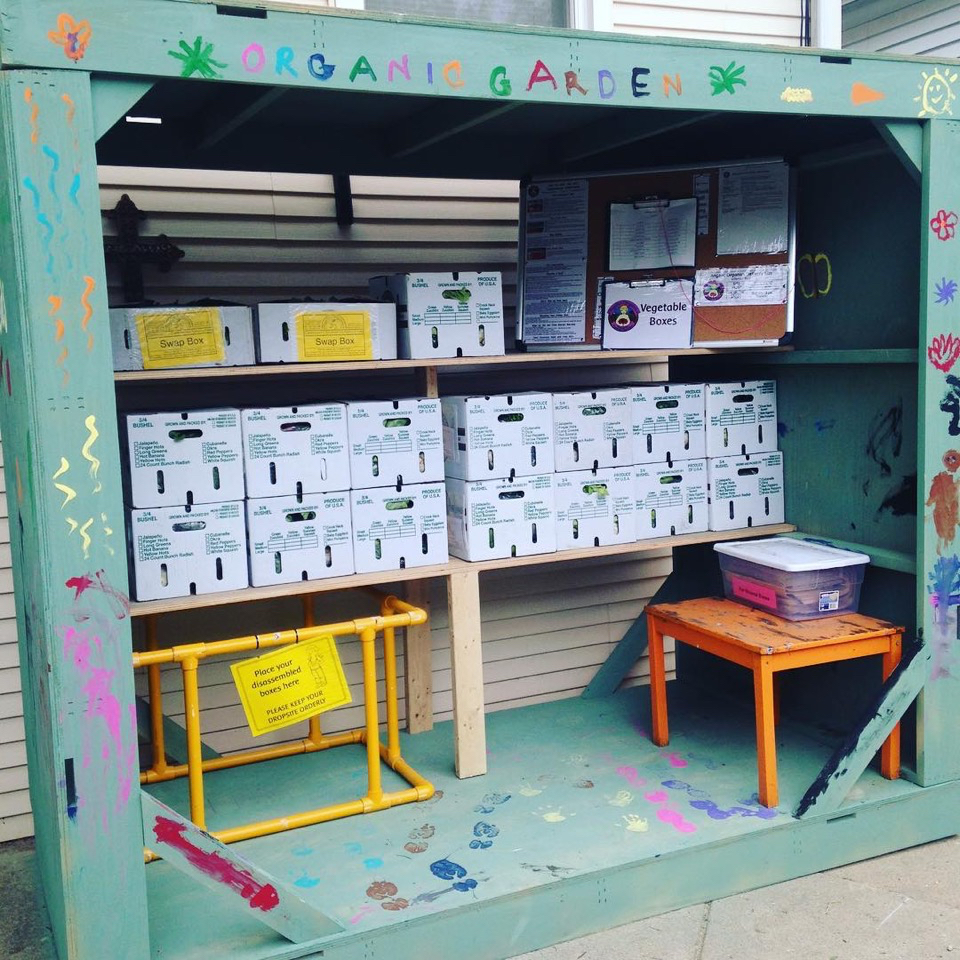
Jefferson Park Pickup Site
Sign up for the Free Recipe Service!
Make sure you sign up for the Local Thyme recipe service we offer with this year’s share. It received many great reviews from our shareholders last season. Find the instructions for signing up for Local Thyme at www.angelicorganics.com/local-thyme
Let us Know
Let Shelly know anything you’d like to share about this week’s box email hidden; JavaScript is required. Please note the week and day of delivery, your site, when you picked up your box, and any comments about your box.
Please Fold Your Boxes Properly and Return Them to Your Site
The farm re-uses the vegetable boxes. Flaps are easily torn when the boxes are dismantled improperly, and then the box bottom might later burst open with fresh, organic local produce heading towards the floor. Please return your empty, flattened vegetable boxes to your delivery site.
More from Shareholders
Visit us often at www.facebook.com/angelicorganics, where we post exciting farm developments regularly, and shareholders post recipes, tips, and photos.
Warmly,
Farmer John
P.S. Angelic Organics Learning Center is an exciting and engaging place to learn about food, farming, and caring for the earth. Sign up for a hands-on farm workshop now at www.learngrowconnect.org/events
